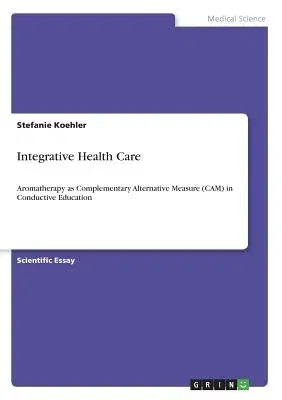Scientific Essay from the year 2017 in the subject Medicine -
Alternative Medicine, language: English, abstract: Integrative health
care encompasses measures and activities that aim to achieve an increase
of human health resources and the potential of maintaining and improving
human health. The term describes the process of empowering individuals
to increase their control over determinants of health and thus to
positively impact their health. The focus is hereby not only on an
individual's behavior, knowledge, and abilities, but also on social,
economic, and environmental circumstances. From a holistic perspective,
health is defined as physical, psychological, and social wellbeing that
is impacted by individual, social, and societal backgrounds. Hence,
health is not so much a condition or a goal but rather a resource of
daily life. Due to demographic developments, we experience an increase
of the population segment with chronic conditions while at the same time
less people are paying into the social security system. Chronically ill
people not only suffer from their primary disease but also the
associated side effects, as in the case of co- and multi-morbidities. A
growing shortage of qualified personnel in the service sector and the
obscurity of health care structures complicate the access to
qualitatively optimized health care. A transformed social framework,
reflected in the abolishment of the intergenerational contract and the
rise of single households, signifies an increased need for associated
processes around the topic of health in relation to self- and
everyday-competence. Future-oriented health care models should be
integrative and personalized in their methodology in order to coach
individuals over a lifetime of health decisions assuring compliance as
well as life quality in accordance with their individual resources. The
concept of conductive education is a Hungarian method for the treatment
of individuals with chronic conditions of the central nervo


